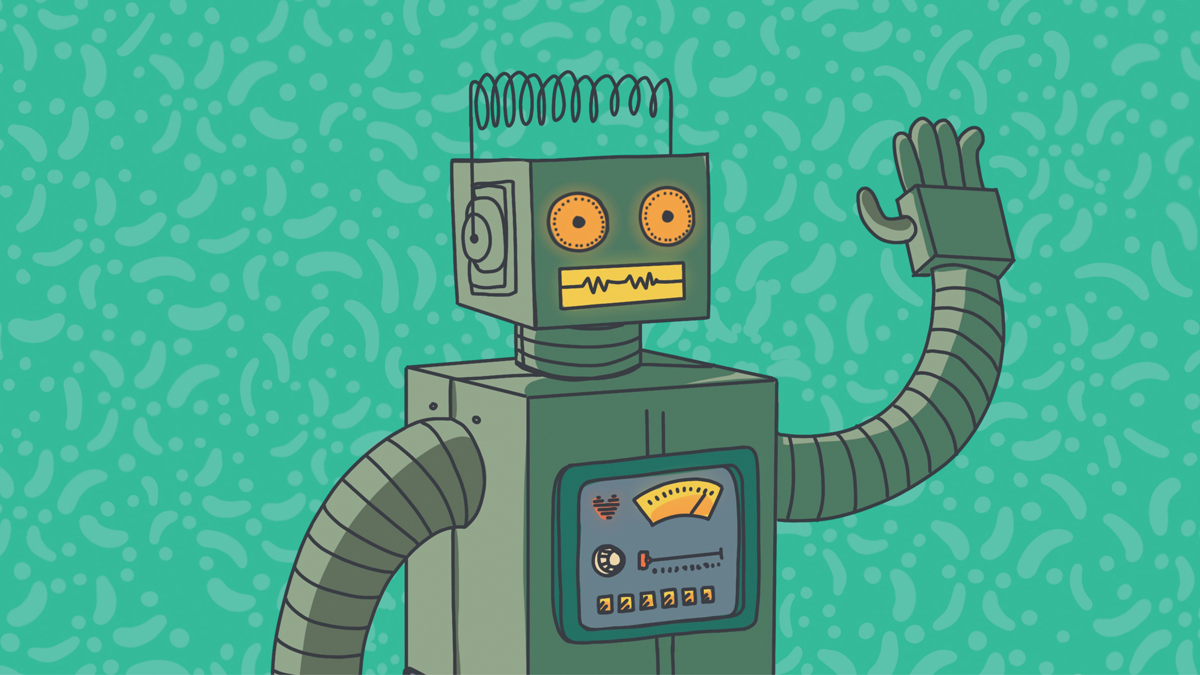Q&A: A sociology professor on the ethics of sex robots
 Alex Patterson
Alex PattersonThe development of sex robots is still in its early stages, but their existence has sparked moral inquiries about their abilities, impact on society, and regulation. Unlike sex dolls, robots are able to converse with the user and move. They may even be able to consent to or refuse sexual activities. While they have an uncanny life-like facade, even the most advanced sex robots on the market now are barely capable of coordinated movement, have few personalities, and feature basic AI. But as this technology progresses, what will it mean for humans — and the robots themselves? Robyn Lee is an associate professor of sociology at the University of Alberta whose research looks at social, cultural, and technological changes and impacts on parenthood, families, care work, and reproduction. We asked her about this intimately ethical dilemma.
The Gateway: Do you think using sex robots harms anyone?
Robyn Lee: There is a case to be made that there is an inherent ethical responsibility to them and that to claim otherwise is too anthropocentric. The argument is also made that we should be good to robots because if we treat robots poorly, we might consequently treat humans poorly.
You could also think about what sex robots mean for the relationships between humans who have different characteristics, privilege, and forms of oppression. We usually think about female sex robots because they’re the most common, so we should examine what that means for the relationship between genders, women’s equality, and social roles. I think we should be concerned about the objectification of women and question whether using sex robots perpetuate stereotypes of women for sexual purposes. I think it’s important to note that sex robots will affect sex workers since a parallel is drawn between them and robots, which might be harmful in terms of further devaluing and dehumanizing them.
Should there be restrictions on the types of sex robots available?
I think, optimally, we would have a wide variety of sex robots that would allow for a broader range of gender expression, sexuality, and activity. If they are intentionally designed to simulate individuals, I think there are some privacy concerns, especially if you mimic someone’s body language and appearance. I’m not exactly sure how this works, but there are already sex toys modeled after individuals, typically porn stars. I think there are likenesses of humans involved, and I think that could be applied to sex robots which would elevate ethical concerns of mimicking human beings for mass production and consumer products.
Should there be an age limit for purchase?
There’s an age limit on the purchase of sex toys generally. Obviously, online purchases are much easier to get around, but stores tend to be more careful in who they’re selling to. If you are thinking about the use of sex robots by children, there is the potential for abuse depending if the sex robot can consent to any activity. I think an age restriction should be part of the discussion.
Should sex robots be able to consent?
As we develop artificial intelligence, there will probably be a point where sex robots will be able to consent. As we continue to have the discussion about this, as much and as early as possible, the sex robots themselves should be part of the discussion. At any point that they start to have ideas and opinions and any indication that they’re conscious, they should be part of the discussion.
Should we limit how much sex robots appear like humans?
I expect Japan might since they already have rules prohibiting sex toys that exactly resemble human body parts, so they’re taking an ethical and moral stance in terms of regulating sex toys. I expect that there would be different regulation in different jurisdictions for how humanlike they can be.
I’m personally pretty uncomfortable with controlling people’s sexual activities as long as consent is ensured, which is always an important thing. I don’t think there’s a really solid ethical ground to not make sex robots humanlike, but that’s something to be debated because I’m not the final word on this.
I think it’s worth wondering about sexuality, sexual practices, the ethics, and the responsibilities that we have as a society. I expect there’s going to be many more conversations about sex robots’ direction and consumption. Obviously, there are sex robots already, but they’re fairly easy to distinguish from a human being, so it’s still early. Artificial intelligence has a whole host of ethical discussions, and while I think sex robots are important to include in that, they are not the most crucial part since we might have bigger problems. Ultimately, the way we use our technology and work with technology changes us as a society and as human beings.
Is it cheating to use a sex robot?
People have a whole range of ideas of what constitutes a monogamous relationship or a non-monogamous relationship and what they allude to in terms of their parameters. So I don’t think it’s possible to pick a universal statement about whether or not it’s cheating. It has to be determined by the people in the relationship themselves.




